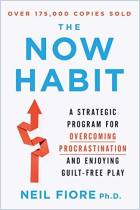
The Disease to Please
Curing the People-Pleasing Syndrome
Read or listen offline
Amazon KindleRecommendation
Why do some people try so hard to please others that end up pleasing no one - including themselves? Harriet B. Braiker anchors this phenomenon in early childhood problems, such as guilt or low self-esteem, and shows how it harms adult relationships, including those at work. Although she emphasizes interpersonal relationships off the job, executives, managers and employees at all levels will still find her book helpful in life and in work. Braiker describes three primary manifestations (compulsive behavior, distorted thinking, and avoidance of negative feelings) of being a people-pleaser, and notes that this problem can stem from a personal mind-set, a habit or an intense aversion to conflict. Most helpfully, she explains strategies for more productive behavior. Sometimes the explanations and self-help quizzes become repetitive, but her examples keep the book’s pace flowing. Thus getAbstract recommends this book as - dare we say it? - a real crowd pleaser.
Summary
About the Author
Dr. Harriet B. Braiker has been a practicing clinical psychologist and management consultant in Los Angeles for more than 25 years. She wrote several highly successful, popular psychology books and numerous scholarly, award-winning research textbooks and other publications. A former contributing editor and columnist for Working Woman, she has written for many other national women’s magazines. She has been a featured guests on CNN and on numerous talk shows, including Oprah, The Today Show, Larry King, Live with Regis and Hour Magazine.


















Comment on this summary or Начать обсуждение